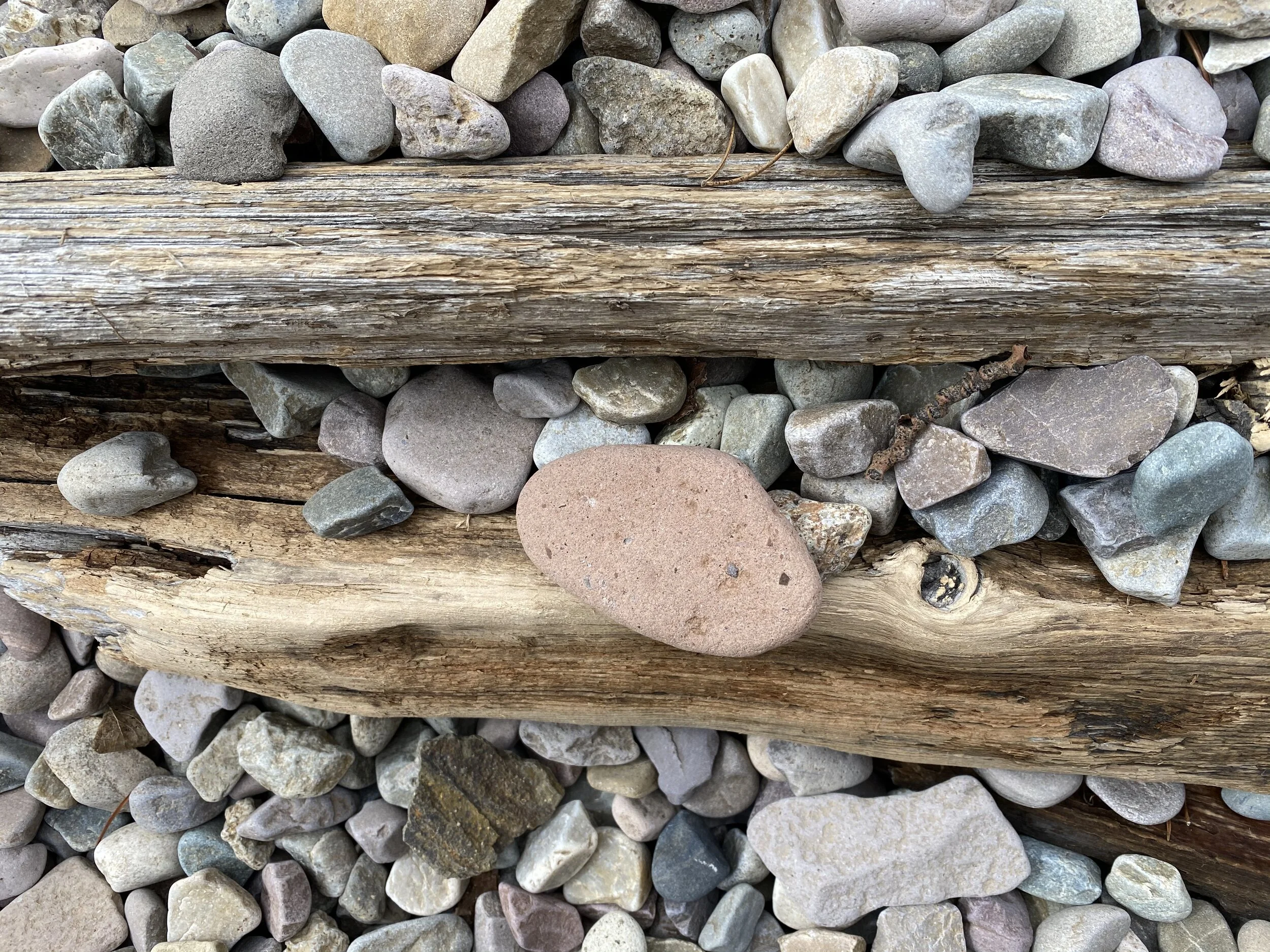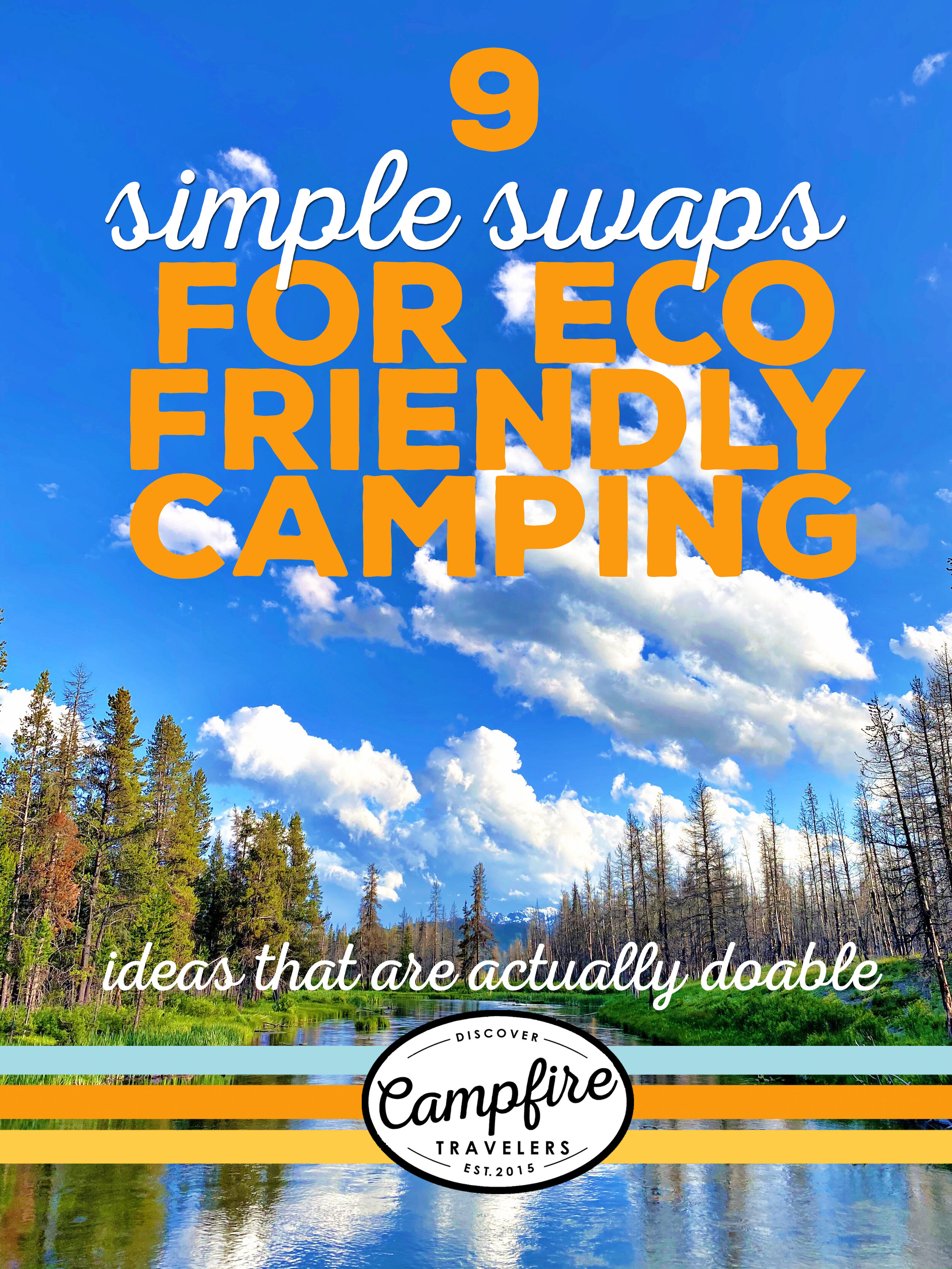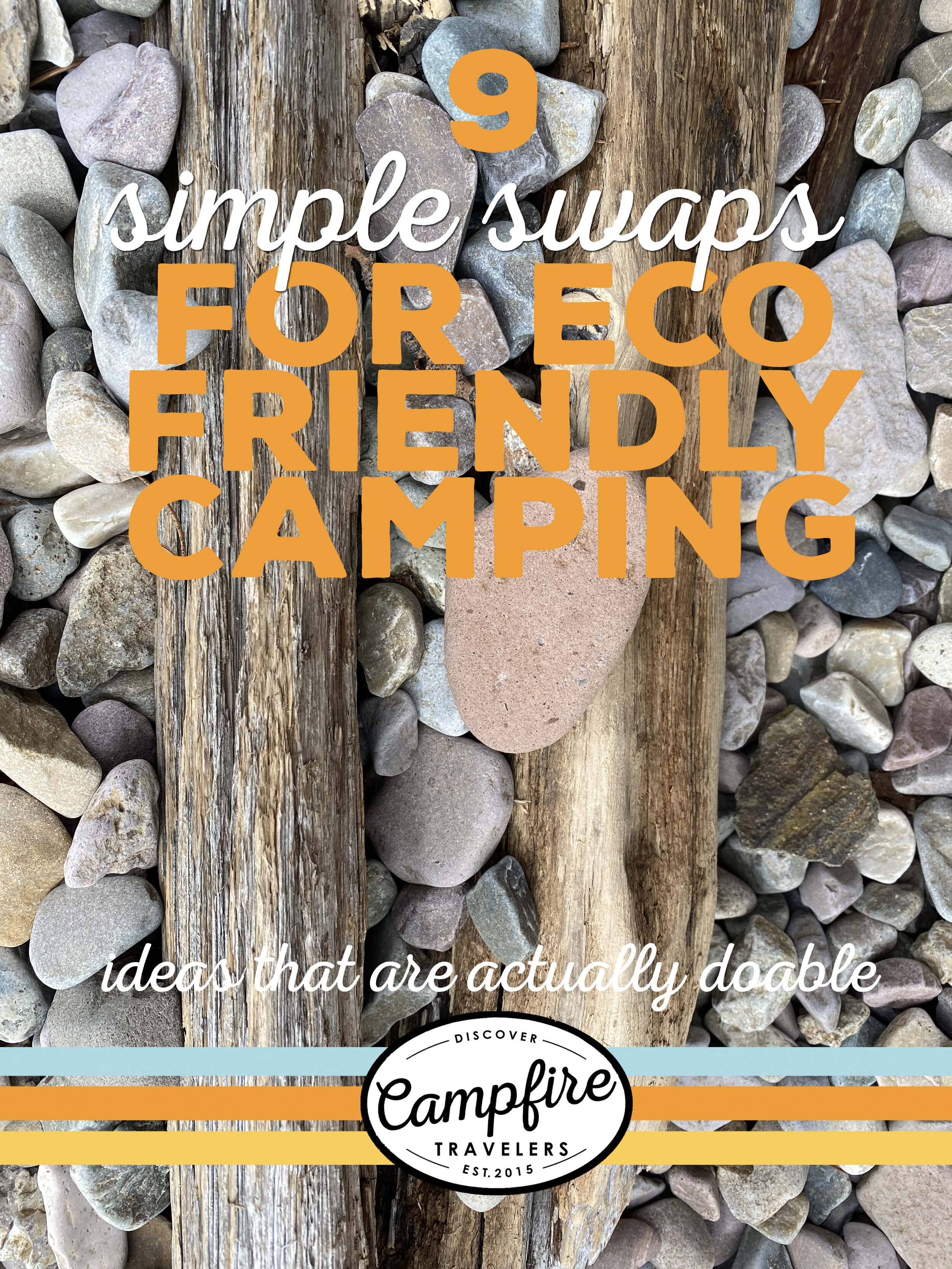9 easy swaps for eco-friendly camping
One of the things about instilling a love for nature in my kids is also taking the time to show them how to appreciate Mother Earth and all that she has given us. Learning respect for natural resources and our planet should go hand in hand with camping. Though an 8 mpg class A RV is not exactly eco-friendly travel, camping really can be done without a trace very easily. There are several swaps you can make to keep your travel eco friendly and sustainable.
Large campground SWAP for backcountry camping - going off-grid is not only extremely relaxing, but when you break away from some of those larger, more wasteful campgrounds, you can guarantee you won’t be using any extra resources.
for those who still want to RV, but would prefer to avoid the RV parks, give boondocking on BLM land a try.
2. Single-use (paper and plastic) plates/cups SWAP for reusable - doing dishes while an amazing hike awaits may not sound fun, but keeping less trash in the landfill is always worth the extra effort. I’ve even been known to bring cloth napkins camping. My only caveat is this - aluminum is indefinitely recyclable, which means a little less single-use guilt. So if you are using any cans on your trip PLEASE recycle those even if it means bringing them home to your own bin.
3. Cheap gear SWAP for quality gear - saving a few dollars now will mean having to purchase new gear earlier than expected while purging the old. Buy durable gear now. We love all of our GSI Outdoors products - they are built to last.
4. Campfire SWAP for portable propane fireplace (or nothing) - when we burn wood it releases carbon dioxide back into our air. Not only that, but hundreds of fires are started every year by careless campers. So when we ditch the campfire, we’re also helping our earth.
We just got this propane fire pit and we love it! It’s very light and portable, gives off a nice amount of warmth, and is easily run off a 20 lb. propane tank. With a few small modifications, we also hooked it to the propane on our RV.
5. Using harmful chemical products SWAP for earth-friendly counterparts - using regular Dawn for cleaning your dishes may not seem like a big deal, but it’s not biodegradable which means it’s definitely not great for the plant life that you’re dumping it out on. We’ve been using Camp Suds for a long time and cleans just as well and now we don’t have to worry about the impact to surrounding plant life. Bonus, it’s multi-use!
6. Explore your national parks by car SWAP for a bike - America’s National Parks are facing a carbon emissions nightmare. If all of us made the effort to take a bike when exploring we could help preserve these areas for future generations. Not to mention the health benefits for us right now. Although you may want to think twice about this one when in wildlife areas like bison and bears.
7. Traveling far SWAP for camping close to home - reduce carbon emissions by staying close to home. Instead of traveling across the country, stay within one tank of gas from home. Browse TripAdvisor boards, Roadtrippers, or YouTube to find places close to home that you may never have heard of. Or revisit a previous campsite during a different time of the year for a completely new experience.
8. Eating from a big box store SWAP for local food - while you’re camping or traveling in general always try to eat local. Farm-to-table restaurants are not only at the height of popularity but an easy way to support local entrepreneurs and reduce carbon emissions. And don’t forget Farmer’s Markets - I like to ask the folks at the stand if an item is local before purchasing, if it’s not, then pass on it.
9. Being careless SWAP for leave no trace principles - this one is simple, too many people are leaving behind too much trash. Please be kind to earth and other humans that are exploring as well. Even better, bring along a few trash bags on your next boondocking trip or hike and pick up the trash you see!
Sometimes changing to eco-friendly ways of travel seems overwhelming, but it really can be easy if we all make one or two swaps every time we go on an adventure. Pass these tips along or share some of your own down in the comments so we can all make a difference.




